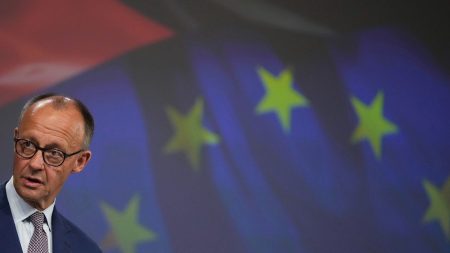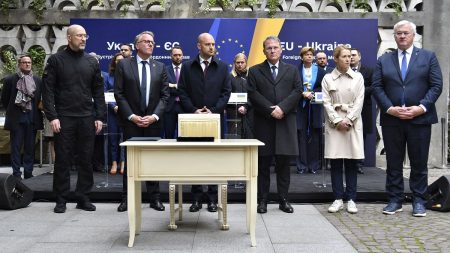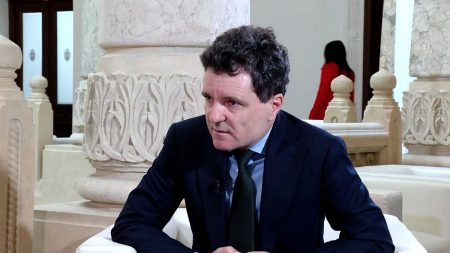The European Commission’s recent announcement to reduce regulatory burdens and environmental legislation has sparked intense debate, coinciding with concerns about the health of the European economy. This move is seen by some as a necessary step to bolster competitiveness, while others worry about its potential impact on environmental protection and social welfare. The automotive industry, a significant contributor to the EU’s economy, faces particular challenges, including fierce competition from China, where electric vehicle prices are significantly lower. The impending closure of the Audi plant in Brussels underscores the urgency of addressing these challenges, with industry leaders calling for a reassessment of decarbonization strategies. The concept of “greedflation,” where companies are accused of exploiting inflation to raise prices, further complicates the economic landscape and raises concerns about its impact on consumers.
The European automotive industry, employing over 13 million people and contributing 7% to the EU’s GDP, finds itself at a critical juncture. Competition from China, particularly in the electric vehicle market, poses a serious threat. Chinese manufacturers benefit from lower production costs and substantial government support, enabling them to offer electric vehicles at prices comparable to gasoline-powered cars. This price advantage puts immense pressure on European automakers, who face higher labor costs and stricter environmental regulations. The closure of the Audi plant in Brussels symbolizes the potential consequences of this competitive disadvantage and the difficult choices facing European manufacturers. The industry is calling for a more pragmatic approach to decarbonization, arguing that the current regulatory framework puts them at a disadvantage compared to competitors in other regions.
The debate surrounding the Commission’s decision to scale back regulations revolves around balancing economic competitiveness with environmental protection. Proponents argue that reducing red tape will stimulate economic growth and create jobs. They contend that excessive regulation hinders innovation and investment, making European businesses less competitive globally. However, critics express concerns that deregulation could undermine environmental standards and jeopardize efforts to combat climate change. They argue that maintaining strong environmental regulations is essential for long-term sustainability and protecting public health. Finding the right balance between these competing priorities is a crucial challenge for policymakers.
The concept of “greedflation” adds another layer of complexity to the economic discussion. Critics argue that some companies are using inflation as a pretext to raise prices beyond what is justified by increased costs. This practice, they argue, exacerbates the cost-of-living crisis and puts undue pressure on consumers. Proponents of this view call for greater scrutiny of corporate pricing practices and measures to prevent profiteering. However, others maintain that price increases are primarily driven by legitimate factors such as supply chain disruptions and rising energy costs. They argue that accusations of “greedflation” oversimplify a complex economic reality.
The differing perspectives on the European economy highlight the challenges facing policymakers. Some argue that a more business-friendly environment is essential to stimulate growth and create jobs. They advocate for policies that reduce taxes and regulations, promoting investment and innovation. Others prioritize social welfare and environmental protection, arguing that these are essential for long-term sustainability and a just society. They call for investments in renewable energy, social programs, and stricter environmental regulations. Finding a path that balances these competing priorities is a complex task with significant implications for the future of Europe.
The European Union stands at a crossroads, grappling with complex economic and environmental challenges. The decision to reduce regulations, the competitive pressures facing the automotive industry, and the debate surrounding “greedflation” all contribute to a complex and uncertain economic landscape. Finding solutions that address these challenges effectively while ensuring a sustainable and prosperous future for all Europeans requires careful consideration of competing interests and a commitment to long-term strategic planning. The ongoing dialogue between policymakers, industry leaders, and civil society is crucial for navigating this complex terrain and shaping a future that balances economic competitiveness, environmental protection, and social welfare.














